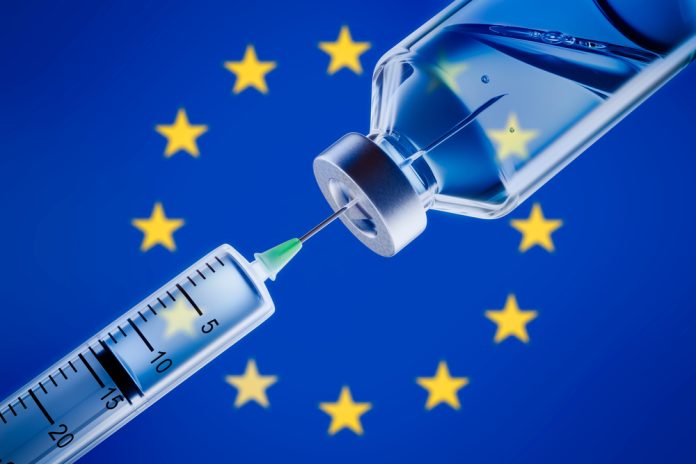The European Commission has introduced a groundbreaking regulation to enhance the availability of critical medicines across the European Union.
This proposal is designed to safeguard public health by strengthening pharmaceutical manufacturing within the EU and encouraging a diversified supply chain.
By reducing reliance on limited sources, the initiative, known as the Critical Medicines Act, seeks to fortify the EU’s resilience in the face of global challenges while bolstering the pharmaceutical sector – a key pillar of the European economy.
Addressing supply shortages of critical medicines
Recent years have underscored the pressing need for improved pharmaceutical security. The COVID-19 pandemic and geopolitical tensions have exposed critical vulnerabilities within the EU’s medicine supply chains.
These challenges, combined with increasing global competition for pharmaceutical resources and manufacturing setbacks, have led to medicine shortages that put patients’ lives at risk and strain healthcare systems across Europe.
The Critical Medicines Act is set to tackle these pressing concerns by providing a comprehensive industrial strategy.
The regulation will create an environment where the production of essential medicines within the EU becomes more attractive to manufacturers.
By securing local supply chains, the EU aims to ensure that patients have consistent access to vital medications when they need them most.
Teresa Ribera, Executive Vice-President for Clean, Just and Competitive Transition, added: “The Critical Medicines Act is about improving a secure supply of vital medicines in Europe.
“It will allow the Commission and the Member States to work together towards reducing the risk of supply disruptions of those medicines and our dependencies on third countries, boosting our resilience in healthcare and supporting our manufacturing capacities.”
Key measures to enhance pharmaceutical industry security
The newly proposed Act comprises several strategic initiatives to reshape the EU’s pharmaceutical landscape.
These measures include substantial investments in domestic manufacturing, regulatory support for industrial projects, and incentives for pharmaceutical companies to establish production within the EU.
One of the core aspects of the Act is the introduction of strategic projects, which will focus on the expansion and modernisation of EU-based manufacturing capacities for critical medicines and their ingredients.
These projects will benefit from streamlined access to funding, as well as prioritised regulatory and scientific assistance to fast-track development and production.
To further encourage investment in pharmaceutical manufacturing, the Commission has published new state aid guidelines, allowing Member States to support strategic projects financially.
These guidelines will ensure that EU nations have the tools to strengthen the pharmaceutical sector while maintaining fair market competition.
Strengthening procurement and international partnerships
A significant component of the Critical Medicines Act is overhauling procurement strategies. Public procurement will now include a wider range of requirements aimed at improving supply chain resilience.
This means that procurement officials must take into account factors such as diversified input sources, supply chain monitoring, and reducing reliance on single-country suppliers.
Additionally, in cases where a high dependency on specific nations is identified, procurement rules will favour EU-based production to enhance security.
To bridge the gap in medicine availability across different Member States, the Commission will facilitate collaborative procurement efforts.
By allowing countries to join forces in acquiring critical medicines, the EU can reduce disparities in access and ensure that all patients benefit equally from a stable medicine supply.
Moreover, the Act prioritises international collaboration to mitigate supply risks. The EU will explore partnerships with like-minded countries and regions to expand supply networks and decrease dependencies on a limited number of pharmaceutical manufacturers.
These global alliances will reinforce the EU’s position as a leader in pharmaceutical security and innovation.
Advancing the European Health Union’s vision
The Critical Medicines Act aligns with the broader objectives of the European Health Union, reinforcing the commitment to ensuring that all EU citizens have reliable access to essential medicines.
By reducing dependencies and strengthening supply chains, the Act will create a more robust, self-sufficient pharmaceutical sector that can withstand future crises.
With the Critical Medicines Act, the European Commission is taking decisive action to transform the EU into a global leader in pharmaceutical production and supply chain security.
By fostering investment, encouraging international cooperation, and prioritising resilience, this initiative will ensure that EU patients receive the critical medicines they need without disruption.
As the legislative process moves forward, the Act represents a significant step towards a safer, more sustainable, and more competitive European pharmaceutical industry.









